#20th century literature
Text
"Some long-forgot, enchanted, strange,
Sweet garden of a thousand years ago,"
~ Edna St. Vincent Millay, from "Interim"
via southerncrossreview.org
#edna st. vincent millay#quotes#literature quotes#literary quotes#lit quotes#quotations#literary quotations#fragments#20th century poetry#20th century literature#american literature#american lit#poetry#poem#american poetry#american author#poetry fragments
739 notes
·
View notes
Text

Art originally by @smrth (find their Twitter here)
#short stories#short story#all summer in a day#ray bradbury#english language literature#american literature#20th century literature#have you read this short fiction?#book polls#completed polls
283 notes
·
View notes
Text
“I am constantly trying to communicate something incommunicable, to explain something inexplicable, to tell about something I only feel in my bones and which can only be experienced in those bones.”
-Franz Kafka, Letters to Milena
#franz kafka#letters to milena#franz kafka quotes#the metamorphosis#kafkaposting#kafka#kafkaesque#kafka quotes#daily kafka#kafka diaries#in the penal colony#kafka letters#poems and quotes#quotes#book quote#classic literature#literature#literature quotes#literary#20th century literature#german literature#novel writing#philosophy novel#20th century author#authors#writers and poets#writers and readers#bookshelf#books and novels#frenchnewwaves
443 notes
·
View notes
Text

#to kill a mockingbird#tkam#harper lee#jem finch#20th century literature#atticus finch#cathy and the abbey
56 notes
·
View notes
Text
A List of Relatable Things Stanisława Przybyszewska has done/written:
Studied philosophy at a university for one semester until "nervous exhaustion forced her to abandon her course"
Dated her letters by the French Revolutionary Calendar
Was known to often be humming La Marseillaise
Called Camille a twink in her play (okay, to be fair she used the word 'ephebe', but I'd argue that is as close to twink as you can get in the 1920s)
Worked at a leftist bookstore (and was subsequently arrested for it)
Took a stray cat from the street which at one point "was the only creature keeping her company"
Complained in at least two letters spanning over 3 paragraphs about a group of loud people playing football near her windows ("For the past forty-five minutes they have not been roaring, they have not been howling, they have been simply shrieking (...) like animals being slaughtered. Screams of that sort must be frightfully tiring for the vocal chords.")
When she wrote "I must write in order to be able to think. As a matter of fact, I am a remarkably unthinking person. Well, of course, that holds true too when I'm talking. But if I don't have either paper, or a human ear to listen to me, then I'm no more of a philosopher than a cat is."
1 + 8 - since I study philosophy at uni & am currently working on my thesis, these felt particularly relatable. I'm not more of a philosopher than a cat is definitely hits. Kind of want to put it in the preface.
2 + 3 are things I may have done myself before (okay, not letters but a diary, but it counts, right?)
7 - as someone who struggles with misophonia, I felt s e e n.
4- I'm sorry guys, I had to. But as someone who frequently asks herself "Are you really calling 30-somethings who have been dead for more than 200 hundred years twinks?", this felt like a vindication of sorts.
Also- I feel kind of conflicted about making this types of Tumblr posts about her since her work is really profound and serious and I have a sneaking suspicion she would have not appreciate them. At the same time, she has been living in my mind rent-free for the past week and this is a way to cope I guess?
SOURCES:
1. A LIFE OF SOLITUDE: STANISŁAWA PRZYBYSZEWSKA
Author(s): JADWIGA KOSICKA and DANIEL C. GEROULD
Source: The Polish Review , 1984, Vol. 29, No. 1/2 (1984), pp. 47-69
2. BBC Reith Lecture Three: Silence Grips the Town. Dame Hilary Mantel, 2017
3. Stanisława Przybyszewska: A Brilliant Playwright Preoccupied With Revolution. Alexis Angulo. Retrieved from: https://culture.pl/en/article/stanislawa-przybyszewska-a-brilliant-playwright-preoccupied-with-revolution
4. Przybyszewska, Stanisława. 1930. The Danton Case.
#french revolution#frev#frev community#stanisława przybyszewska#przybyszewska#the danton case#frev memes#history#literature#also go read the articles they are excellent#but obviously incredibly sad#camille desmoulins#20th century literature#misophonia#1700s#maximilien robespierre#georges danton#academia#it actually took effort not to put “daddy issues” on there#I guess it's now in the tags#oops#hall of fame
48 notes
·
View notes
Text
You know what charm is: a way of getting an answer without having posed any clear question.
Vous savez ce qu’est le charme: une manière de s’entendre répondre oui sans avoir posé aucune question claire.
-The Fall (Le Chute), Albert Camus, 1956
#quote#quotes#Camus#Albert Camus#The Fall#Le Chute#Existentialism#literature#French literature#20th century literature#French#French language
75 notes
·
View notes
Text
The Five Stages of Reading Albert Camus
1. The Discovery – ”The Stranger” (1942)
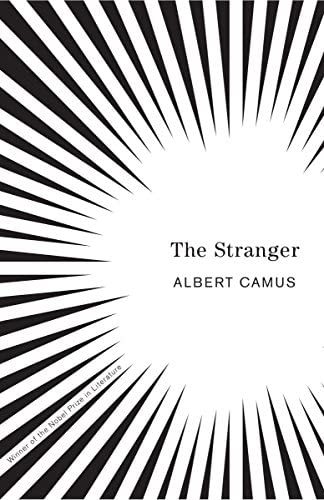
„The Stranger” is unquestionably the best choice for anyone who wants to get to know Albert Camus. It's so simple that it fools you at first. You think it's going to be an easy read, but when you finish the book and put it down, you don't even know your name or if it even matters to have a name. It will probably keep your mind busy for months and make you think about the true meaning of life. You will most likely never be the same person again.
2. Falling in Love – ”Betwixt and Between” (1937) // ”The Fall” (1956) // ”Exile and the Kingdom” (1957)
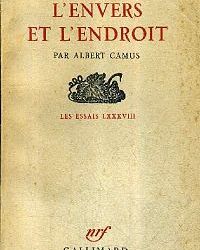
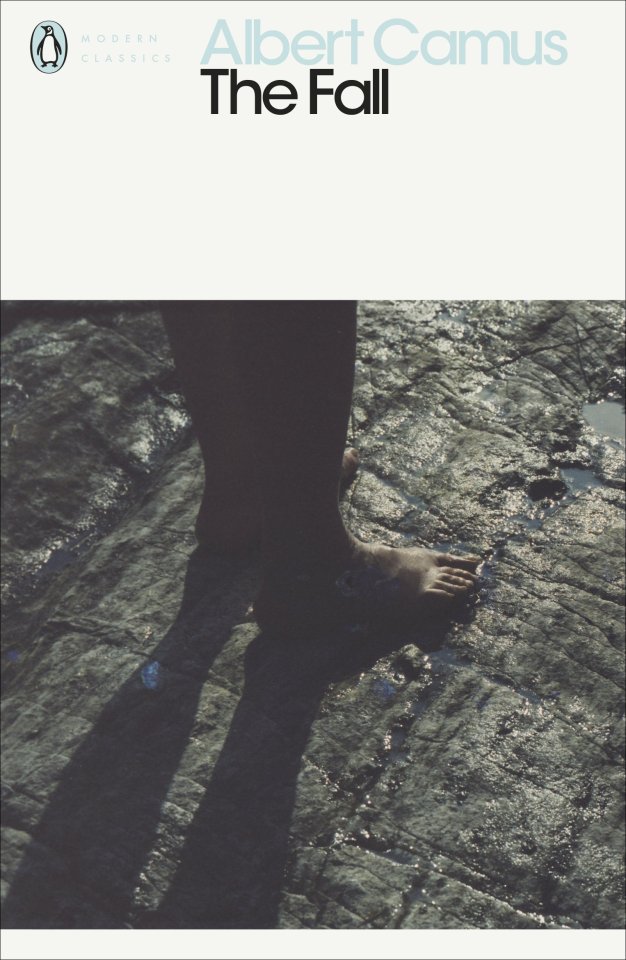
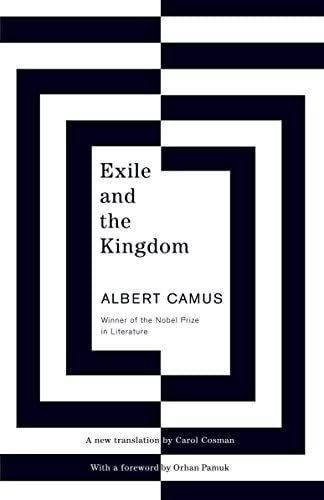
After "The Stranger" has had time to settle and stick in your mind (a process that takes about six months to a year), it's time to explore other writing. Camus doesn't use the same language in every book, so it's important to be careful what you choose to read after. The best options to fall irrevocably in love with this French philosopher are ”Betwixt and Between”, which is his very first published book, ”The Fall”, which offers a very interesting narrative perspective, or ”Exile and the Kingdom”, his only collection of short stories. After going through these, your heart will be caught in the nets of love for Camus.
3. The Surprise – ”The Plague” (1947) // ”A Happy Death” (written 1936–38, published 1971) // ”Summer” (1954) // ”Nuptials” (1938)

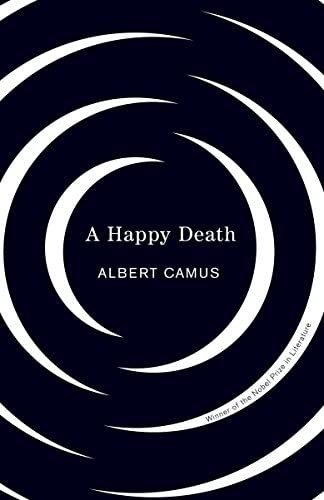

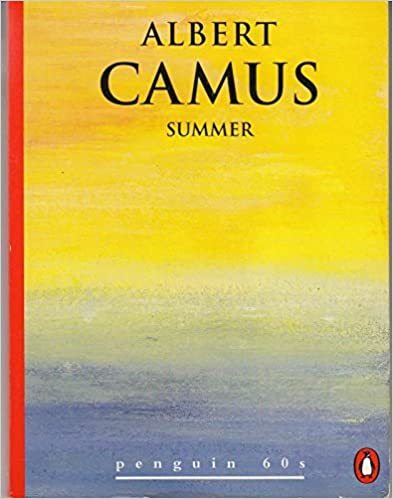
After the reader has gone through the above books, he will have the impression that he knows Camus. Now is the time for him to have the surprise of his life. Camus managed the feat of not giving the audience the same thing twice. That is why each of his writings is unique. Some are easier to read and digest, some are not. At this stage, it is time to get acquainted with its more difficult side. "The Plague" is a story that shakes you to the core and is difficult for even the best readers to get through. ”The Happy Death” should never have seen the light of day, being the first version of what we now know as The Stranger. "Summer" and "Nuptials" are dubbed essays and are similar in format to ”Betwixt and Between”, but here Camus approaches a completely new language, so poetic and refined that it instantly wins you over. Only after the reader goes through these books can he say that he understands a part of Camus.
4. Not just a writer – ”The Myth of Sisyphus” (1942) // „The Rebel” (1951) // Theatre Plays // Journalism Articles
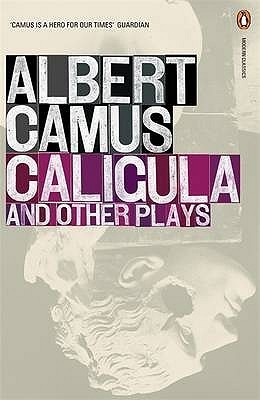
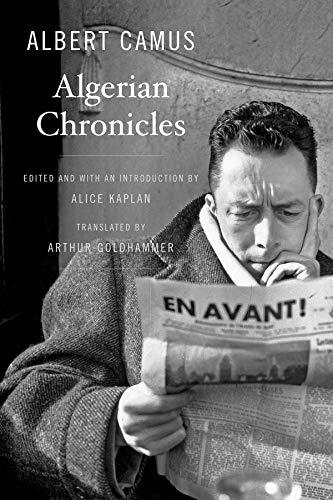
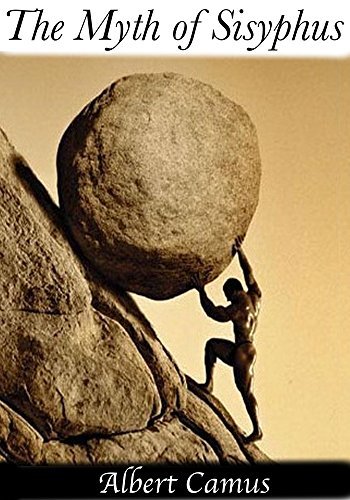
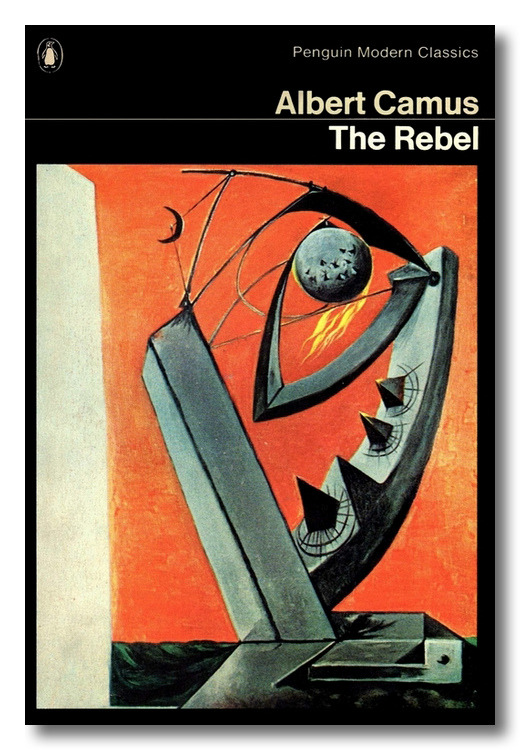
Camus was not only a great French writer. He was also a philosopher (though he never called himself that), a journalist and a playwright. If you are interested in fully understanding Camus, you must also understand his writings in other fields. "The Myth of Sisyphus" is the essay that formed the basis of the formation of a new philosophical current called absurdism. "The Rebel" continues the work started by "The Myth of Sisyphus", going much deeper into the issues related to the meaning of life, art, war, etc. Plays like "Caligula" (1938) or "The Misunderstanding" (1944) are wonderful pieces of art in the history of the theater, while summing up the entire philosophy of Camus. His journalistic articles reveal a Camus involved in society, trying to change something in one way or another through writing. "Reflections on the Guillotine" (1957) for example was an important work that contributed to the abolition of the death penalty in France. Camus never confined his writing to a single specialization, and this can be seen in the skill with which he explored the power of the word in its various forms.
5. Camus the Human – ”The First Man” (incomplete, published 1994) // ”American Journals” (1978) // ”Correspondence (1944–1959)” // ”Notebooks”
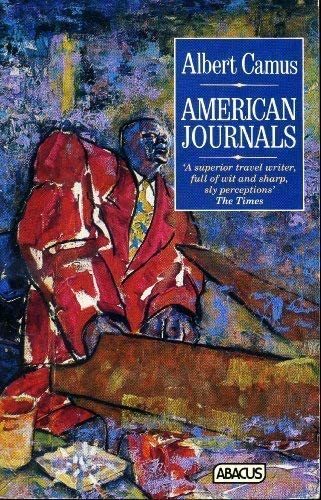
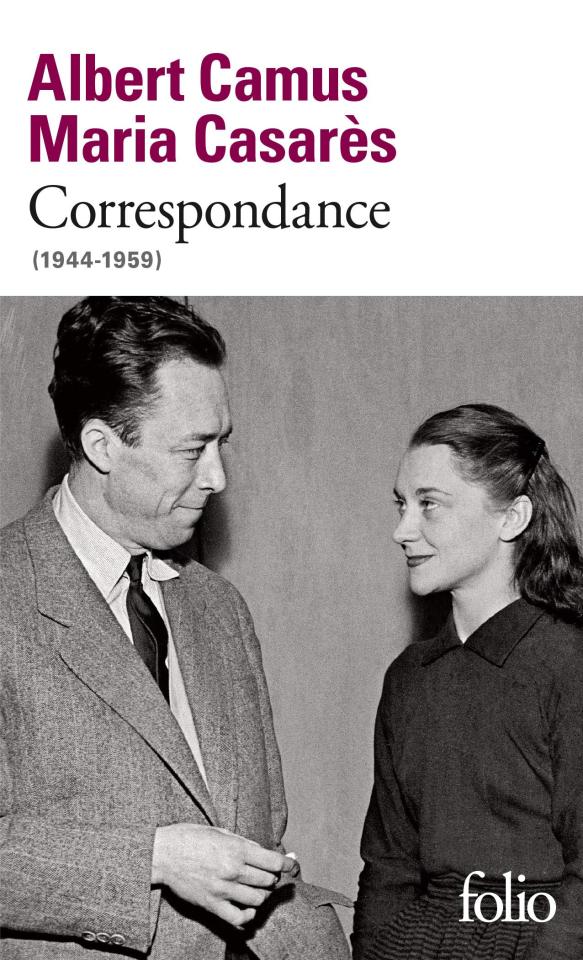
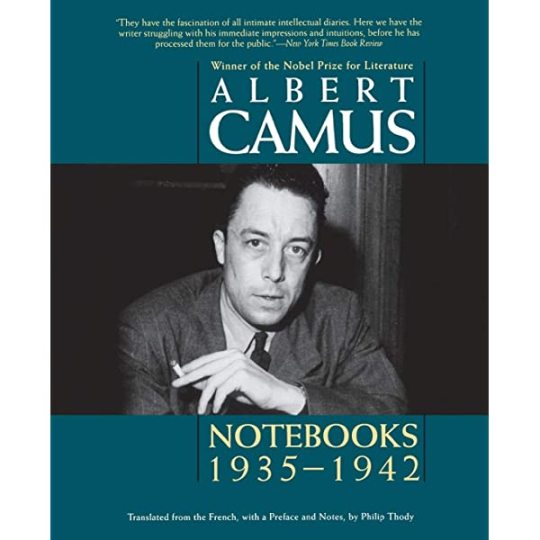

At this point, after going through all these readings, we also want to find out who was the man behind the word. Camus put many things from his personal life into writing, but in this selection we have the most personal point of view. ”The First Man” was supposed to be an autobiographical novel, but Camus died before he could finish it. The remaining manuscript was revised and published years after the author's death. "American Journals" captures a highly sensitive moment in his life, an existential crisis in Camus's life. ”Correspondence” is an exchange of letters between Camus and the woman with probably the greatest influence in his life, Maria Casares. Finally, the "Notebooks" are a collection made from the notes that Camus wrote over the years in his countless notebooks. Every intimate thought, beginning of a novel, reflection, trace of feeling, all these complete the image of Camus as a man.
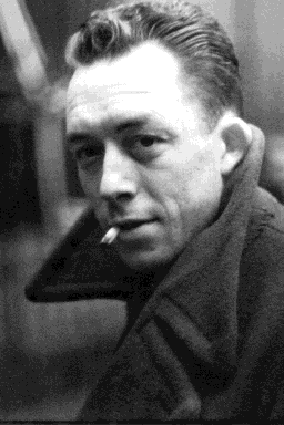
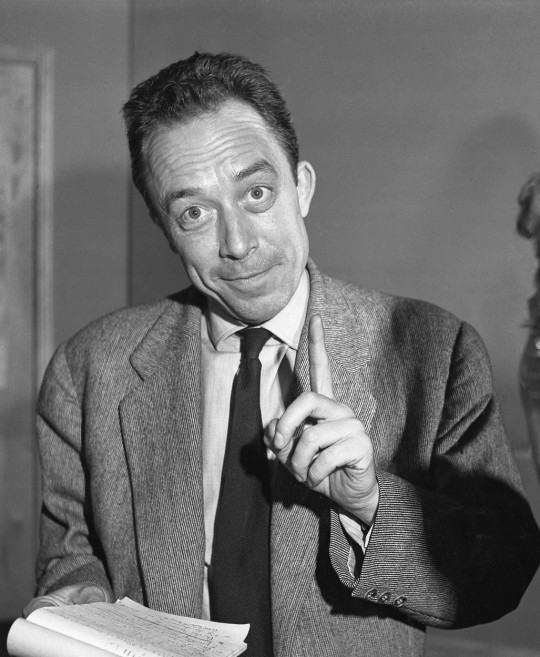
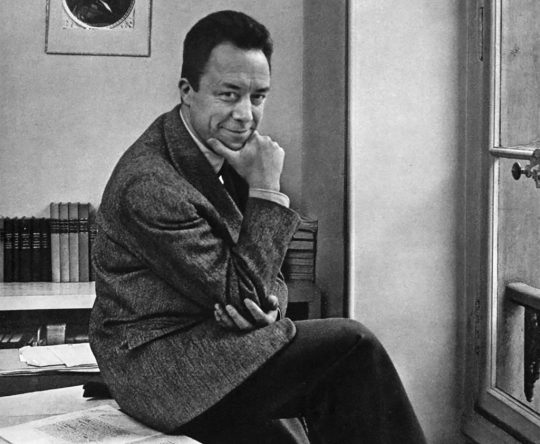
Congratulations! If you have reached this point, you have managed to go through all the stages of knowledge and you can call yourself a true fan of Albert Camus. Now go and spread his teachings to other little outstiders. And don't forget, the only purpose of life is to be happy (reading Camus together).
#albert camus#camus#camus quotes#classic literature#literature#french literature#albert#the stranger#the plague#the fall#exile and the kingdom#20th century#20th century literature#classic authors#a happy death#the first man#betwixt and between#nuptials#summer#the myth of sisyphus#the rebel#philosophy#philosopher#20th century philosophy#absurdism#absurd#existentialism#the theory of the absurd#notebooks#american journals
339 notes
·
View notes
Text

No Longer Human by Osamu Dazai
#no longer human#osamu dazai#dazai osamu#mine#Japanese literature#literature#excerpt#book excerpt#20th century literature#classic lit#litblr#books#poetry#reading#bookblr#books and literature#classic books
31 notes
·
View notes
Photo


A. Alvarez, “The Art of Suicide,” Partisan Review, 37 No. 3 (1970) (x)
#a. alvarez#suicide#partisan review#20th century literature#after all our subtle colour and nervous rhythm#lit#currently reading
104 notes
·
View notes
Link
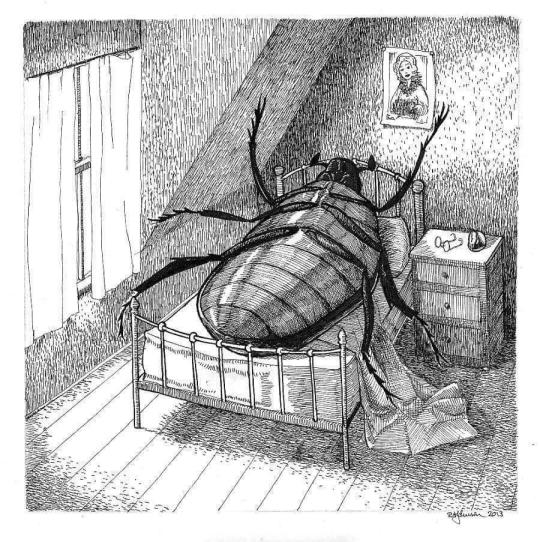
#The Metamorphosis by Franz Kafka#free audiobook#audiobooks#audio#kafka#podcast#podcasts#books#books and literature#books and libraries#books and authors#books and reading#free books#public domain#20th century literature#20th century#literature#The Metamorphosis#1900s
54 notes
·
View notes
Text
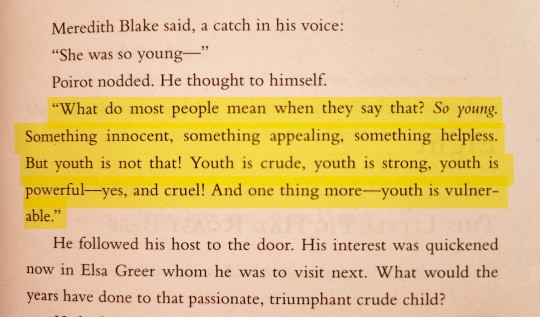
Agatha Christie, Five Little Pigs (1942)
#agatha christie#hercule poirot#five little pigs#books#literature#quotes#literature quotes#literature excerpts#excerpts#book quotes#english literature#murder mystery#fiction#novel#youth#20th century literature#british literature#lit quotes#literary quotes#quotations#e
239 notes
·
View notes
Text

*Originally published in Spanish with the title "El almohadón de plumas"
#short stories#short story#uruguayan literature#spanish language literature#20th century literature#the feather pillow#el almohadón de plumas#horacio quiroga#book polls#have you read this short fiction?#completed polls
226 notes
·
View notes
Text
"I never wish to be easily defined. I'd rather float over other people's minds as something strictly fluid and non-perceivable; more like a transparent, paradoxically iridescent creature rather than an actual person."
-Franz Kafka (diary of March 24th 1914)
#franz kafka quotes#franz kafka#daily kafka#kafka diaries#kafkaesque#kafka#the metamorphosis#19th century literature#19th century novels#20th century literature#literary#german literature#literature#literature quotes#classic literature#austrian literature#author#writing#writers and poets#philosophy novel#books and novels#novelist#books & libraries#book extract#book quote#book quotes#books and reading#poems and quotes#quotes#frenchnewwaves
275 notes
·
View notes
Text

Re/search - Complete Volumes of Zines and Extra Texts : V. Vale : Free Download, Borrow, and Streaming : Internet Archive
11 notes
·
View notes
Text
And all things were transfigured in the day
But me, whom radiant beauty could not move;
For you, more wonderful, were far away,
And I was blind with hunger for your love.
-Claude McKay, "Summer Morn in New Hampshire"
#quote#quotes#Claude McKay#poetry#literature#African-American#African-American poetry#African-American literature#Black poetry#Black literature#love poetry#20th century literature#20th century poetry#Harlem Renaissance
29 notes
·
View notes
Text
The 13th of January is a sad day in Valencian literature. It's the anniversary of the death of two of the greatest modern writers: Isabel-Clara Simó (1943-2020) and Enric Valor (1911-2000).
In this video (posted by À Punt), you can see two fragments of interviews with them, where they talk about the importance of the language in their work. I have added subtitles in English. The transcription is under the cut.
(Note: "Valencian" and "Catalan" are two names for the same language. Both terms are being used interchangeably.)
Enric Valor: to teach for 300 years in another language and to not lose nor alter deeply our language is a real miracle. For this reason, all the European philology is marveled of the Valencian people. Without knowing why, for tradition, for love of your family, to be like your parents, to speak like your parents, all of a person's memories manifested through that language- and we have preserved it in such a rich way that there was no danger of being irreparable.
Isabel-Clara Simó: I have always written, all my life. I used to write only in Spanish because I didn't know that written Valencian existed. Joan Fuster and his group taught me it, in València. And the first time that I tried to write a story -full of spelling mistakes- in Catalan, I started crying. Because it was the first time that I was writing in the language that I think in.
#literatura#arts#enric valor#isabel-clara simó#valencià#català#languages#langblr#translation#books#bookblr#literature#world literature#minority languages#20th century literature
100 notes
·
View notes